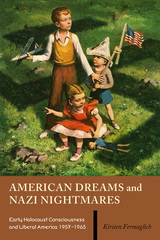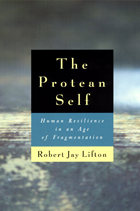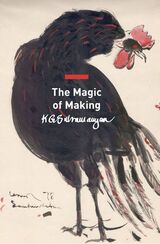

In a Dark Time is an anthology for the nuclear age, created by two professional psychologists who have ordered their material so that the successive selections reflect and comment on one another, compelling the reader to think about the insanity of war. This book draws on thoughts and writings from more than two millennia: poets from Sappho to Robert Lowell, dreamers from Saint John the Divine to Martin Luther King, Jr., statesmen from Seneca to Winston Churchill, soldiers, churchmen, writers, leaders. Along with them are mingled the voices of people who have faced appalling danger in their own lifetimes--an American schoolchild, a Hiroshima grocer, a plague survivor, a Turkish dissident. Human beings appear at their best and at their worst: as savage warriors, as helpless victims, as dupes of "Nukespeak" and warlike propaganda, and finally as individuals with the courage to say no.
In a Dark Time will shock, warn, and ultimately inspire those many people who share the perception that humankind now stands on the brink of self-annihilation but who believe, with Theodore Roethke, that "in a dark time, the eye begins to see."


Violence is a topic of concern everywhere--in the media, in churches, in the halls of governments. In every land and in every culture violence is considered by most to be taboo, a last resort. Yet under certain conditions, from the level of the family to the level of nations, violence is used as a mechanism of social control. Various rationalizations thus emerge to distinguish between legitimate and illegitimate violence.
The Web of Violence explores the interrelationship among personal, collective, national, and global levels of violence. This unique collection brings together a number of internationally known contributors to address the genesis and manifestations of violence in the search for a remedy for this confounding social problem.
As the global community becomes more intimate, we must better understand the nature of violence. The Web of Violence supports this aim by examining the dangerous human phenomenon from many perspectives, at different levels, and using multiple methodologies.
Contributors: Robert Jay Lifton, Christopher G. Ellison, John P. Bartkowski, Yuan-Horng Chu, Philip Smith, Robert Elias, Birgit Brock-Utne, Riane Eisler, Johan Galtung
READERS
Browse our collection.
PUBLISHERS
See BiblioVault's publisher services.
STUDENT SERVICES
Files for college accessibility offices.
UChicago Accessibility Resources
home | accessibility | search | about | contact us
BiblioVault ® 2001 - 2025
The University of Chicago Press









